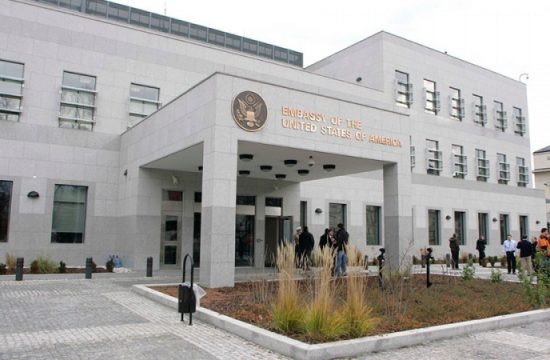A landmark trial of a former high-ranking Syrian regime officer accused of overseeing the torture of thousands of prisoners began in the German city of Koblenz on Thursday.
Colonel Anwar Raslan worked for Syria's intelligence services until he defected from the regime at the end of 2012, just over a year after the start of the country's uprising-turned-civil war. He was arrested in Berlin last February and charged by German prosecutors with crimes against humanity.
Raslan and a former junior officer, Eyad A were arrested under the principle of universal jurisdiction, which gives a national court jurisdiction over grave crimes against international law, even when they were not committed on the country's territory. Attempts to set up an international tribunal have been hampered by Russian and Chinese vetoes at the United Nations Security Council.
Raslan's trial in Koblenz is the first court proceeding against a senior member of Syrian President Bashar al-Assad's regime, which has been repeatedly accused of war crimes and crimes against humanity over the course of the country's nine-year war.
Another former junior regime officer, identified by German authorities as Eyad A, is also standing trial for crimes against humanity.
Syrian officials have repeatedly denied the allegations, insisting they target terrorists and not peaceful protesters. CNN is trying to reach the lawyers of the two defendants.
Raslan has been in Germany since 2014 and Eyad since 2018, according to the court statement.
“What happened today is like a dream,” Amer Matar, a 33-year-old Syrian who said he was tortured by Raslan, told CNN. “I had lost hope that we would ever be able to deliver justice to the regime.”
Matar, a journalist from Raqqa, was arrested just over two weeks after the start of Syria's March 2011 uprising. He said he was repeatedly beaten, while blindfolded with his hands bound, when he was jailed in al-Khatib prison, where Raslan headed interrogations.
“In one of the interrogation sessions, someone ripped off my blindfold, and I saw Raslan who then punched me again and again,” said Matar, now based in Berlin. “I was later beaten and kicked by a group of men. I couldn't walk for days after that.”
Raslan is accused of overseeing the torture of at least 4,000 prisoners between April 29, 2011 and September 7, 2012, according to a court statement. At least 58 of the prisoners died. Rape and sexual assault allegedly occurred in at least one case.
At least three of Raslan's accusers were in court for the first hearing. Several more are expected to deliver witness testimony to the courts.
Matar, who was unable to attend Thursday's hearing because of restrictions over the coronavirus, says he looks forward to taking the witness stand, and “looking (Raslan) in the eye.”
That the trial is happening at all is seen as a major victory for lawyers and investigators, including Syria's “document hunters,” who smuggled hundreds of thousands of government documents out of war zones. The documents, compiled by the Commission for International Justice and Accountability (CIJA), have served as evidence at judicial proceedings.
“This is a historic day for Syrians and all those fighting the absolute impunity we have been seeing for the crimes committed by the regime apparatus,” Bill Wiley, founder and executive director of CIJA, told CNN.
“There are other Assad officials who think they found refuge in European countries and CIJA is working to support more such prosecutions in the near future.”
“The systematic investigation of the Assad government's crimes — particularly systematic and widespread torture — is a start,” said the European Center for Constitutional and Human Rights (ECCHR), which represents 17 plaintiffs at Raslan's trial.
“The criminal proceedings are first of all important for the survivors involved in the trial. This trial is the first occasion on which they are speaking out — not only in public, but before a court — about what happened to them and what is still happening in Syria.”



